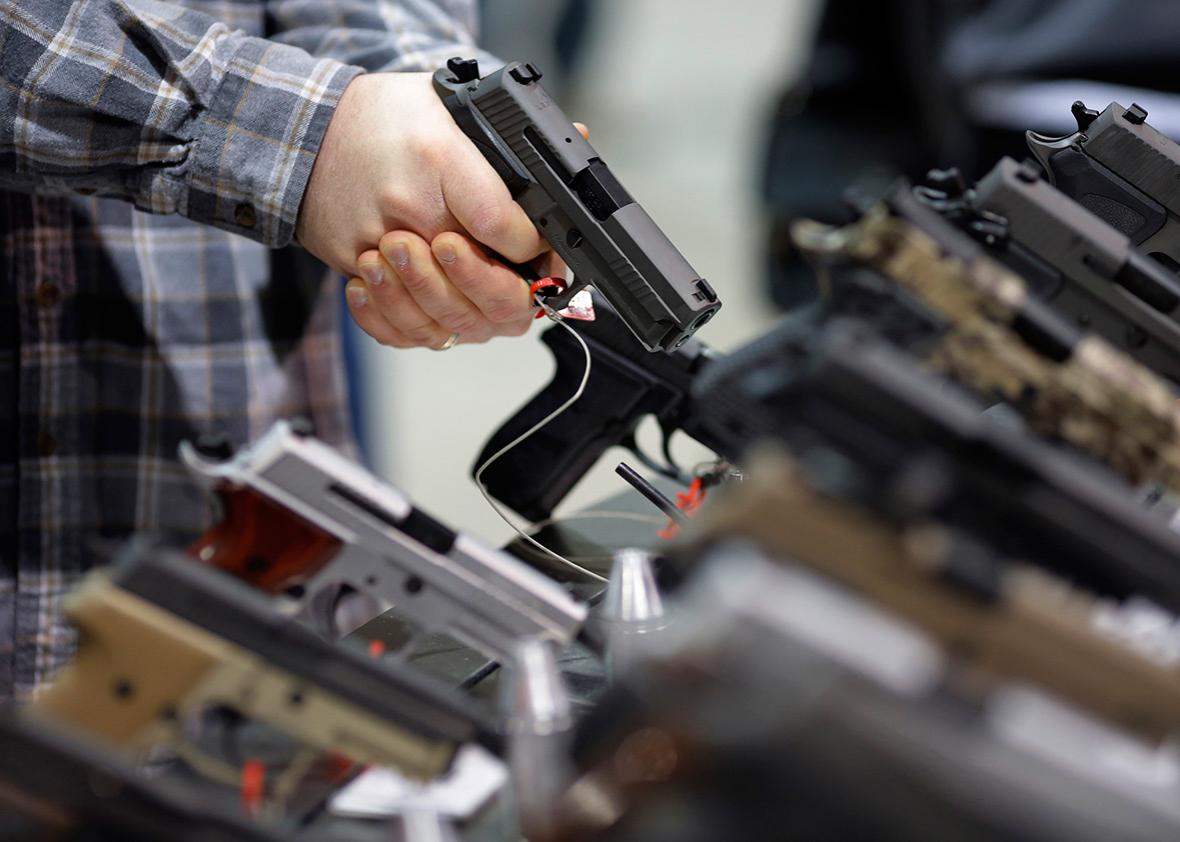Last week, the House GOP passed a gun bill that has been uniformly condemned by law enforcement leaders across the country. These lawmakers brushed off the impassioned pleas of police leaders for one simple reason: The legislation—known as the Concealed Carry Reciprocity Act—is the No. 1 priority for the National Rifle Association.
The NRA proposal, which will now go before the Senate, would allow people to carry hidden guns in every state with no permit, no training, and no background checks whatsoever. It would undermine local public safety decisions and put police officers at severe risk. As a matter of public policy, it’s a terrible idea.
It’s also unconstitutional. As more than a dozen state attorneys general have explained, the NRA’s federally mandated concealed carry plan conflicts with basic “constitutional principles of federalism.”
The Constitution—and common sense—recognizes that different states have different cultures, traditions, and needs when it comes to guns. That’s why states make their own rules when it comes to public safety, policing, and concealed weapons. The NRA plan would turn that tradition on its head.
Under current law, every state allows some form of concealed carry, but the rules vary significantly from state to state. Most states require a permit before you can legally carry a hidden gun, many conduct background checks, and some require extensive training. But a dozen states don’t require any permit whatsoever—much less a clean criminal record or basic firearms proficiency. Under the NRA’s plan, Congress would impose the anything-goes approach of these states on every other state, forcing them to enforce rules made by distant legislators for people in far-away states. This weakest-link approach would let anyone over the age of 17 hide a handgun anywhere on his or her person and walk the streets of any city in the nation, even if the person wasn’t eligible to carry—or even own—a handgun under the laws of that city.
Such interference with states’ rights is as unconstitutional as it is unprecedented.
The 10th Amendment to the U.S. Constitution reserves powers to the states that are not delegated to the federal government, and the states’ “police power”—the basic responsibility to promote the welfare, safety, and health of the public—is sacrosanct. Throughout American history, states have had the primary responsibility for public safety, and regulating who carries guns in public, and under which conditions, is among the most important ways they do so. The race-to-the-bottom concealed carry plan would eviscerate states’ police power.
It would also diminish elected officials’ accountability to voters. The Constitution contemplates that a state’s government will represent and remain accountable to its own citizens, but under the NRA’s plan, concealed carry rules in any given state would be set by bureaucrats in whichever state capitol sets the bar lowest—no matter how far away or how different from the standards of another state.
Under our Constitution, Congress doesn’t have the power to simply replace one state’s law with that of another, and it can’t make states with strong concealed carry laws enforce low standards that violate their own important public policies. Such power would dramatically undercut state autonomy and violate the principle that state governments be accountable to the preferences of local voters.
The NRA plan would also impose significant costs on the states. They would have to provide extensive (and expensive) training to teach law enforcement how to respond to out-of-state visitors claiming a right to carry hidden guns under the laws of distant states. There’s no national database of concealed carry permits like there is for driver’s licenses, so if Congress passed the plan, states would be forced to create new and costly tools for police who encounter nonresidents with hidden guns. Core principles of federalism dictate that Congress may not force state governments to absorb the financial burden of implementing regulatory decisions made by other states, but that’s just what would happen under the NRA’s proposal.
Given the plan’s constitutional flaws, scholars with widely divergent views on guns have found some surprising common ground. Legal experts who support reasonable gun regulation agree that the NRA concealed carry plan would face significant constitutional hurdles. But even legal scholars who support expansive gun rights favor state-by-state regulation. One constitutional law professor in Texas who says the Supreme Court has condemned the Second Amendment to “constitutional purgatory” by treating it as a second-class right recently opined—correctly—that congressionally mandated concealed carry “turns federalism on its head.”
In light of reciprocity’s constitutional infirmities—and the fact that law enforcement leaders have uniformly rejected it—members of the Senate should break from the House and reject the proposal. Senators who vote no on federally mandated concealed carry wouldn’t just be choosing public safety over the gun lobby’s dangerous agenda; they’d be upholding their oath to defend the Constitution.
